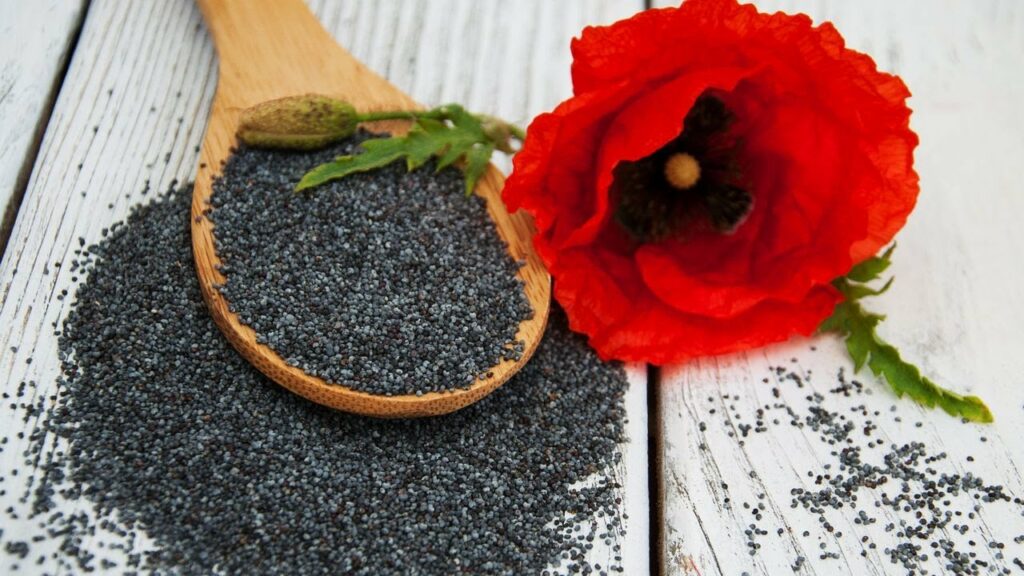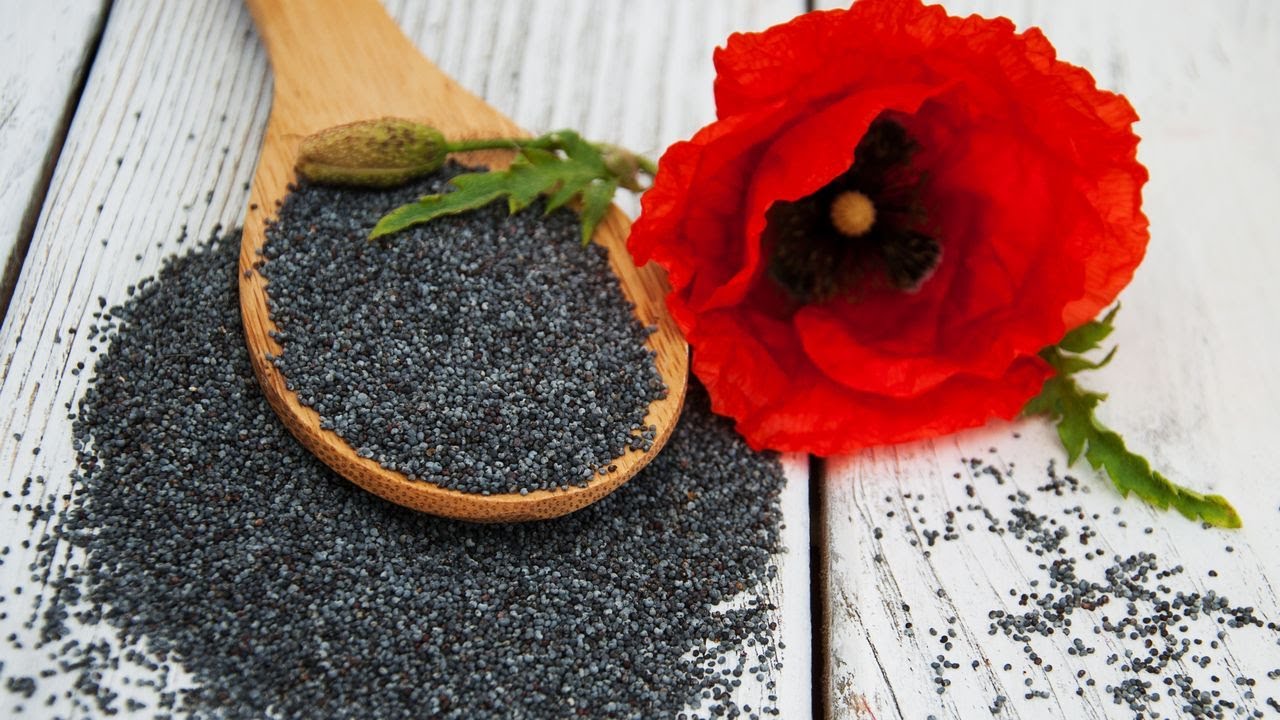
The poppy plant (Papaver somniferum), commonly known as the opium poppy, is not only admired for its beautiful flowers but also for the rich nutritional and medicinal value of its seeds. Poppy seeds have been used for centuries in both culinary and traditional medicine. This remarkable plant offers numerous health benefits while being a versatile ingredient in the kitchen. Let’s explore the beauty, nutrition, and healing properties of the poppy plant.
1. Rich Nutritional Profile
Poppy seeds are packed with essential nutrients such as healthy fats, fiber, and protein. They also contain important vitamins and minerals, including calcium, magnesium, phosphorus, and iron, making them a nutritious addition to your diet.
Key Nutrients:
-
Healthy Fats: Poppy seeds are rich in unsaturated fats, particularly omega-6 fatty acids, which are beneficial for heart health.
-
Calcium and Magnesium: These minerals are crucial for bone health, muscle function, and maintaining a healthy nervous system.
-
Iron: Poppy seeds provide a good source of iron, which is essential for red blood cell production and preventing anemia.
2. Supports Bone Health
Thanks to their high calcium content, poppy seeds can support strong bones and teeth. Regular consumption of poppy seeds may help reduce the risk of bone-related issues such as osteoporosis.
How to Use:
-
Add poppy seeds to smoothies, yogurts, or baked goods for an easy way to boost your calcium intake.
3. Natural Pain Relief
Historically, the poppy plant has been known for its analgesic (pain-relieving) properties. While the seeds themselves do not contain opiates, poppy seed oil can help alleviate mild pain and inflammation when applied topically. The oil has been used for soothing muscle aches, joint pain, and skin irritations.
How to Use:
-
Use poppy seed oil as a massage oil to relieve sore muscles and reduce inflammation.
4. Improves Digestion
Poppy seeds are rich in dietary fiber, which aids in healthy digestion. The fiber content promotes regular bowel movements and helps prevent constipation. This can contribute to better digestive health and a healthier gut.
How to Use:
-
Sprinkle poppy seeds on salads, cereals, or into breads to increase your fiber intake.
5. Promotes Relaxation and Better Sleep
Poppy seeds are known to have mild sedative effects, which can promote relaxation and better sleep quality. They contain small amounts of compounds that can help calm the mind and reduce anxiety.
How to Use:
-
Try poppy seed tea or include poppy seeds in your evening meals to help promote relaxation before bedtime.
6. Skin and Hair Benefits
Poppy seeds, especially when used in the form of oil or paste, have excellent moisturizing properties. They can help nourish and hydrate dry skin, leaving it soft and supple. Additionally, poppy seed oil is great for promoting healthy hair growth and adding shine to your hair.
How to Use:
-
Make a paste of soaked poppy seeds and apply it as a face mask to nourish dry skin.
-
Use poppy seed oil in your hair care routine to keep your scalp healthy and strengthen your hair.
7. Antioxidant and Anti-Inflammatory Properties
Poppy seeds contain antioxidants that help fight oxidative stress and inflammation in the body. These properties contribute to overall health by protecting cells from damage and reducing the risk of chronic diseases.
How to Use:
-
Regularly incorporating poppy seeds into your diet can provide antioxidant benefits that support heart health, skin vitality, and overall wellness.
Conclusion
The poppy plant (Papaver somniferum) is truly a treasure, offering both beauty and a wealth of nutritional and medicinal benefits. Whether you’re using poppy seeds in your diet to support bone health, digestion, and relaxation, or applying poppy seed oil for skin and hair care, this remarkable plant proves to be a versatile and powerful natural remedy. Incorporate poppy seeds into your daily routine to enjoy their impressive health benefits!




